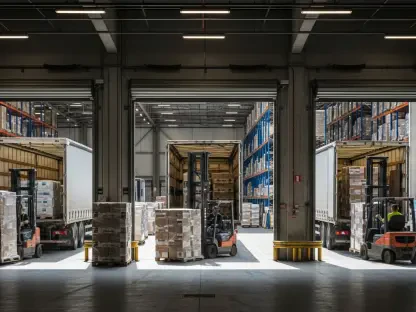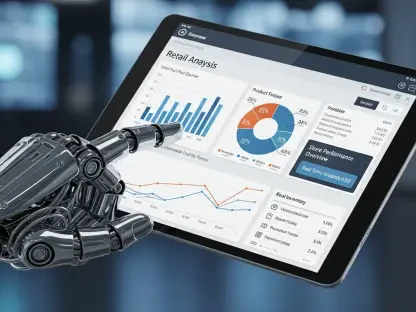Efficiency is crucial in logistics, and Artificial Intelligence (AI) isn’t just a passing phase; it’s revolutionizing the industry. AI’s ability to process vast amounts of data and automate repetitive tasks is especially beneficial in logistics. Machine learning helps predict and refine delivery routes, leading to less fuel use and quicker deliveries. Additionally, AI-driven robots in logistics centers take over the repetitive, physically taxing work of sorting packages, providing relief to human workers.AI’s role extends to inventory management as well, where it autonomously monitors stock levels and predicts demand, replenishing items proactively to prevent shortages. This advanced stock management reduces waste and enhances resource use, essential for an industry where profit margins are often very slim. As AI continues to integrate into logistics, the industry stands to see remarkable gains in efficiency and operational excellence.
Revolutionizing Real-Time Decision Making
Central to AI’s impact on logistics is its capability for real-time decision-making. Traditional logistic systems, while automated to an extent, often relied on historical data and cyclical analysis for decision-making. Such models are ill-equipped to deal with the dynamic, rapidly changing demands of modern commerce, particularly in the e-commerce space. AI steps in with the power to analyze vast troves of real-time data, from traffic conditions to weather, for adjusting delivery routes instantaneously. This level of adaptability ensures on-time deliveries and reduces the chances of congestion and delay.Moreover, AI augments human decision-making by providing insights that would take much longer for humans to compile and understand. For instance, AI can oversee entire fleets and communicate with vehicles to reroute them based on the most current information available, making each operation within a logistics center more resilient to unforeseen challenges and more reactive to changes as they happen.
Enhanced Customer Service through AI Implementation
Customer service is another pillar of logistics where AI is making significant strides. AI-driven chatbots and virtual assistants, capable of handling routine customer inquiries, are already easing the pressure off human customer service agents, allowing them to focus on more complex queries. This speed in resolving simple issues contributes to a better overall customer experience.Beyond the frontline customer interactions, AI is also improving the accuracy of order fulfillment. Mistakes in shipping orders are costly and harm customer trust. By employing AI to verify items before they’re shipped or to manage returns more effectively, logistics centers can significantly reduce error rates. This heightened accuracy leads to satisfied customers, increased loyalty, and, ultimately, higher profits.









